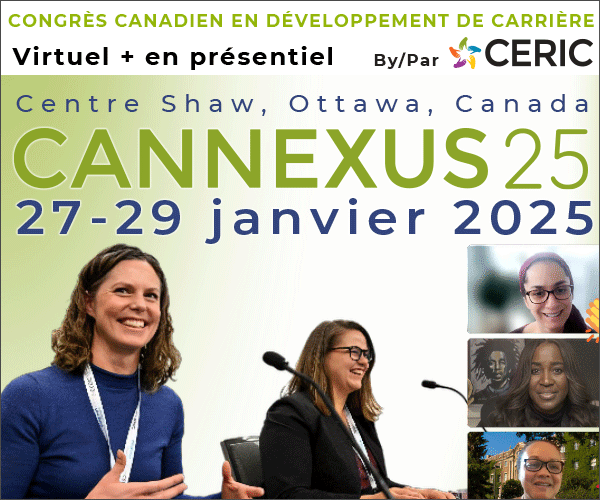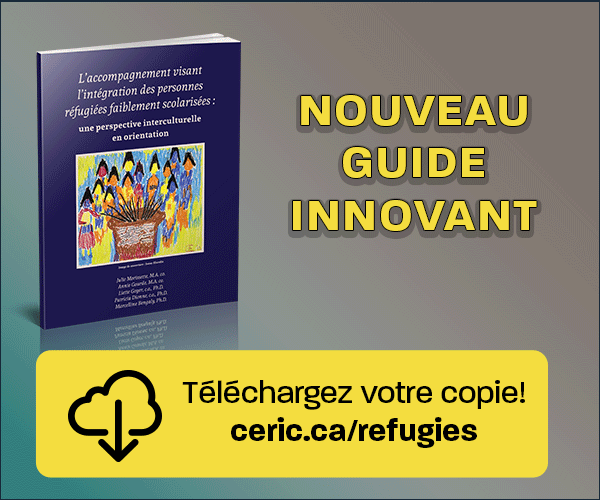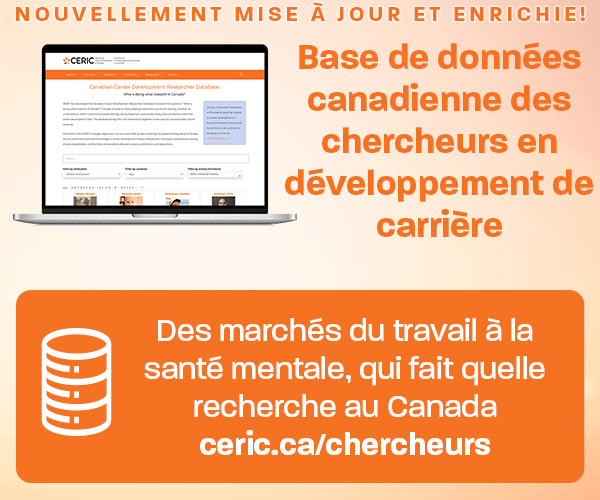Élaboration de normes pour l’inventaire espoir-action à partir d’un échantillon d’usagers de substances psychoactives
DOI :
https://doi.org/10.53379/cjcd.2023.362Mots-clés :
compétences professionnelles, évaluation, Inventaire des espoirs et des actions, consommation de substancesRésumé
Le Hope-Action Inventory (HAI), une mesure des compétences professionnelles basée sur l'espoir, a démontré une solide validité prédictive pour les résultats scolaires et professionnels. L'objectif de cette étude était de justifier l'extension de l'utilisation du HAI en examinant les différences entre les groupes et en établissant des normes pour l'interprétation des résultats du HAI chez les personnes ayant des antécédents de toxicomanie. Les participants (N = 783) ont été recrutés par l'intermédiaire de centres d'aide aux toxicomanes et de la plateforme de recrutement en ligne Amazon Mechanical Turk. Des différences significatives ont été constatées entre les différents statuts d'emploi et les différents groupes d'âge. Des données normatives sur le HAI avec des populations consommatrices de substances sont fournies par âge et par statut d'emploi.
Références
Amundson, N., Goddard, T., Niles, S., Yoon, H. J., & Schmidt, J. (2016). Hope centred career interventions. https://ceric.ca/wp-content/uploads/2012/10/Hope-Project-Final-Report.pdf
Amundson, N., Niles, S., Yoon, H. J., Smith, B., In, H., & Mills, L. (2013). Hope-centered career development for university/college students. http://ceric.ca/wpcontent/uploads/2012/10/CERIC_Hope-Centered-Career-Research-Final-Report.pdf
Bauld, L., McKell, J., Carroll, C., Hay, G., & Smith, K. (2012). Benefits and employment: How problem drug users experience welfare and routes into work. Journal of Social Policy, 41(4), 751–768. https://doi.org/10.1017/S004727941200030X
Brown, R. L., & Rounds, L. A. (1995). Conjoint screening questionnaires for alcohol and other drug abuse: Criterion validity in a primary care practice. Wisconsin Medical Journal, 94(3), 135–140.
Currie, L. N., Bedi, R. P., & Hubley, A. M. (2023). Factor Structure of the Hope-Action-Inventory with a Problematic Substance Use Sample. Measurement and Evaluation in Counseling and Development. https://doi.10.1080/07481756.2023.2185157
Clarke, A., Amundson, N., Niles, S., & Yoon, H. J. (2016). Action-oriented hope: An agent of change in internationally educated professionals. Journal of Employment Counseling, 55(4), 155–165. https://doi-org.ezproxy.library.ubc.ca/10.1002/joec.12095
Niles, S. G., Yoon, H. J., & Amundson, N. E. (2010). Career flow index: Hope-centered career development competencies [Unpublished Manuscript]. University Park.
Niles, S. G., Yoon, H. J., Balin, E., & Amundson, N. E. (2010). Using a hope-centered model of career development in challenging times. Turkish Psychological Counseling & Guidance Journal, 4(34), 101–108. https://dergipark.org.tr/en/pub/tpdrd/issue/21454/229791
Santilli, S., Ginevra, M. C., Ferrari, L., Sgaramella, T. M., Niles, S., Nota, L., & Soresi, S. (2020). Using the hope-centered career inventory (HCCI): Italian version with healthcare professionals. International Journal for Educational and Vocational Guidance, 21(1), 145–159. https://doi.org/10.1007/s10775-020-09433-4
Schindler, N., Schreiber, M., & Schärer, Y. (2014, July). The construct validity of the German
Hope-Centered Career Inventory (HCCI). [Paper presentation]. International Congress of Applied Psychology, Paris, France.
Schreiber, M., Yoon, J. H., & Schindler, N. (2013, September). The German version of the Hope-Centered Career Inventory. [Poster presentation]. IAEVG Conference, Montpellier, France.
Statistics Canada. (2013). Canadian Community Health Survey. https://www150.statcan.gc.ca/n1/daily-quotidien/130617/dq130617b-eng.htm
West, S. L. (2008). The utilization of vocational rehabilitation services in substance abuse treatment facilities in the U.S. Journal of Vocational Rehabilitation, 29 (2), 71–75. https://content.iospress.com/articles/journal-of-vocational-rehabilitation/jvr00434
Yoon, H. J. (2017, March 2–4). Psychometric properties of the Hope-Centered Career Inventory: An update after six years of administration [Poster presentation]. Academy of Human Resource Development International Research Conference, San Antonino, Texas, United States.
Yoon, H. J., Bailey, N., Amundson, N., & Niles, S. (2019). The effect of a career development programme based on the Hope-Action Theory: Hope to work for refugees in British Columbia. British Journal of Guidance & Counselling, 47(1), 6–19. https://doi.org/10.1080/03069885.2018.1544827
Yoon, H. J., In, H., Niles, S. G., Amundson, N. E., Smith, B. A., & Mills, L. (2015). The effects of hope on student engagement, academic performance, and vocational identity. The Canadian Journal of Career Development, 14(1), 34–45. https://cjcd-rcdc.ceric.ca/index.php/cjcd/article/view/176
Yoon, H. J., Oh, E. G., & Mitchell, W. (2020). The effect of Employment Works Canada program for individuals with ASD: A Hope-Action Theory perspective [Manuscript submitted for publication]. Department of Learning and Performance Systems, The Pennsylvania State University.

Téléchargements
Publié-e
Comment citer
Numéro
Rubrique
Licence
(c) Tous droits réservés La Revue canadienne de développement de carrière 2023

Cette œuvre est sous licence Creative Commons Attribution - Pas d'Utilisation Commerciale - Pas de Modification 4.0 International.











